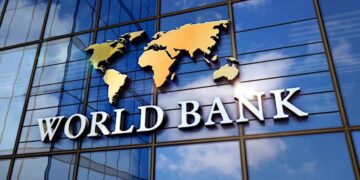South Asia’s heavy reliance on state-owned commercial banks, state-owned enterprises, public-private partnerships and other national and sub-national public entities conceals its vulnerability to accumulating unsustainable levels of debt, according to a new World Bank report, “Hidden Debt: Solutions to Avert the Next Financial Crisis in South Asia”, released on Tuesday.
South Asia is more exposed to the risk of “hidden debt” from state-owned commercial banks (SOCBs), state-owned enterprises (SOEs) and public-private partnerships (PPPs) because of its greater reliance on them compared to other regions. But the report offers key areas for policy actions and concrete reforms that can help governments leverage public capital more responsibly through these types of entities to advance economic development.
“The COVID-19 pandemic has highlighted South Asia’s rising levels of public debt. The region is more exposed to the risk of hidden debt because it relies heavily on the governments’ involvement in markets to aid economic development, said Hartwig Schafer, World Bank Vice President for South Asia. “But the crisis demonstrates the critical importance of the judicious use of debt-financed public commitments and debt transparency to build back better, more sustainably, and more equitably.”
Hidden Debt studies the trade-offs between addressing development challenges directly through state presence in the markets and the risk of accumulating high levels of debt due to economic inefficiencies of off-balance sheet operations. It focuses on SOBCs, SOEs and PPPs and their contingent liabilities—obligations incurred by governments off their balance sheets that have triggers for payment. Over time, part of the debt is revealed as it hits the central government budget and debt stock, but a large part remains hidden under the radar of existing financial disclosure standards.
“The efficiency of South Asian state-owned banks and other state-owned enterprises is well below the international benchmark,” said Hans Timmer, World Bank Chief Economist for South Asia. “As governments rebuild from the shock of the COVID-19 pandemic and strive to avert future financial crises, they should clearly separate the social and commercial objectives of these enterprises in order to reduce inefficiencies, while maintaining socially beneficial investments.”
Governments often promise SOEs subsidies to run programs such as advancing access to electricity to underserved populations and small enterprises. SOCBs are asked to run government programs to promote financial inclusion or lend to under-served or riskier small and medium enterprises, often without compensation for losses that private markets avoid. They are also asked to stimulate economies during downturns or financially support large PPPs that have concentrated risks. These hidden mandates are based on requests that are often made ad hoc and without consideration of risks or costs.
“In episodes of systemic shock—such as the global financial crisis or the COVID-19 pandemic—when many banks experience distress simultaneously, private banks deleverage and curtail lending, while state-owned commercial banks receive capital and debt support from the state to continue or increase lending,” said Martin Melecky, World Bank Lead Economist and author of the report. “But this short-term stabilizing function comes at the cost of crowding out other social spending as public funds get spent on bank recapitalization and significant credit misallocation—away from successful firms and especially small and medium enterprises—making for an unequal recovery.”
The report estimates that a systemic macro-financial crisis can trigger PPP failures that would cost South Asian countries more than 4 percent of revenues, and the potential costs from distressed SOEs have been even more overwhelming. In Pakistan, the total liabilities of chronic loss-making SOEs have been 8 to 12 percent of GDP in recent years, several times more than the country’s public spending on education in FY19-20. In Sri Lanka, liabilities of loss-making SOEs have been around 4 to 5 percent of GDP. In every country studied, the top 10 loss-making SOEs account for more than 80 percent of the total losses in the SOE sector.
Distressed public agents at the sub-national level also inflict substantial costs on the real economy and local business. When a subnational government is hit by a contingent liability shock, local investments suffer for several years. For example, local investments in the Indian states fall significantly in the year of a contingent liability shock, continue to decline in the year after, and remain significantly below the trend for three years after the event.










